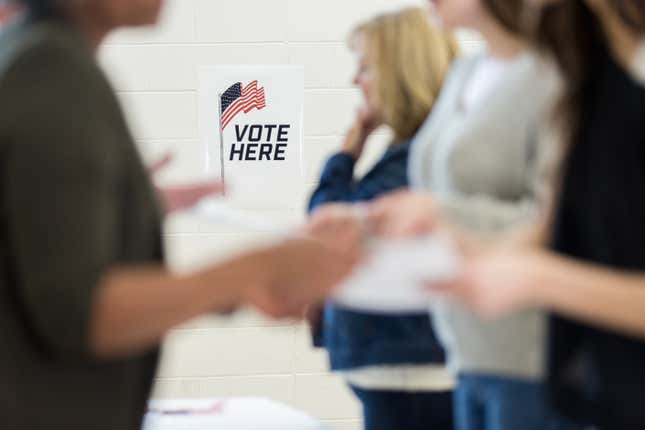Suburban Women, White Women, and ‘Dads’ Are Flocking to Democratic Party Over Abortion
“What we faced was a believability gap—people didn’t believe it was actually at risk," says EMILY's List's Christina Reynolds.
Politics

After the Supreme Court overturned Roe v. Wade in June, Kansas reported a 1,038% increase in voter registrations that week, compared with the week before. On Aug. 2, despite widespread disinformation from the anti-abortion camp, voters in the red state overwhelmingly defeated a ballot measure to end the state right to abortion by a 20-point margin. New national polling suggests Kansas could be a microcosm of a broader trend: Several major demographics are flocking to the Democratic Party in droves since the fall of Roe.
A Fox News poll from this week shows that fathers have moved from +20 support for the Republican Party in May to +8 support for the Democratic Party in August—a 28-point shift, compared with +13 support for the Republican Party among male voters overall in May to +11 support for Republicans in August. The same poll found an 8-point shift to support Democrats among white women, compared with a 7-point shift among women voters in general; a +9 point shift among suburban women; and a +10 shift among women of color.
These numbers are especially significant given the oft-cited fact that a majority of white women voted for Trump in 2016 and 2020. Exit polls, which contain errors and should always be taken with a grain of salt, suggested that around 52% of white women voted for Trump in 2016, and between 52 and 55% of white women voted for him in 2020. White women in general, particularly married ones (they vote with their Republican husbands, as the assumption goes) have historically voted GOP—but it looks like the fall of Roe could be the last straw for many.
-

-

-

-

-

-

-

-

-

-

-

-

-

-

-

-

-

-

-

-

-

-

-

-

-

-

-

-

-

-

-

-

-

-

-

-

-

-

-

-








































